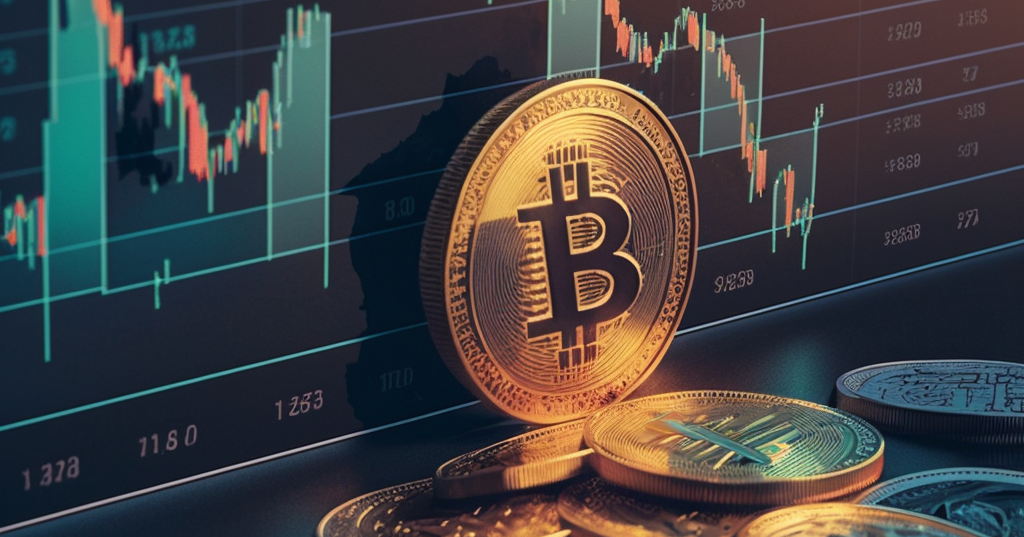SWAP: Asset allocation is not a privilege for the rich, blockchain + traditional finance gives you the Pareto optimal solution
Is asset allocation just the privilege of the rich? The fear of shrinking the assets of the middle class is really nowhere to be found? How can private assets achieve high returns by achieving global asset allocation?
On June 26th, the ChainNode live room invited the Chairman of the Board of Directors of the Hong Kong Trust Association, the Dean of the Heritage College, the partner of Tianshi Investment Management Co., Ltd., and the SWAP investor Rome Chan Chen Yujun as a guest. Perhaps the blockchain technology + traditional financial SWAP can give The answer to your question above.
The following is the essence of live content, organized by Babbitt.
Question 1: How do you look at the history and characteristics of Hong Kong's financial markets?
- Wanchain released the PoS Galaxy Consensus Beta in the first quarter of the year, doubling the speed of the block, the official light wallet debut
- Bitcoin is 15 minutes deep and $1,700. Coinbase and other platforms once 瘫痪
- Analysis of the market: BTC high shocks, mainstream currency will usurish up?
Chen Yujun: In 1891, Hong Kong established its first exchange. Since then, Hong Kong's local economy has been driven, and it has gradually become a regional financial center after World War II. What made Hong Kong become an international financial metropolis later? I think there are several factors: First, the geographical position is superior, it is at the gateway of shipping and trade; Second, China's opening up and Hong Kong's special status in China; Third, the problem of jet lag, Hong Kong's Europe and America The time is coherent. New York closed at the opening of Hong Kong. Hong Kong closed at the opening of London. The global economy is operating 24 hours a day. Therefore, it has formed three economic centers in New York, London and Hong Kong. The time difference has a certain role. Fourth, the Hong Kong government The policy, which positions itself as a free center, allows money to flow in and out freely, and its tax system is simple and plays a very good role.
Question 2: What is the impact of the Sino-US trade war on Hong Kong's financial landscape?
Chen Yujun: The Sino-US trade war has an impact on the economy and finance. Investors may be in a wait-and-see attitude. But in fact, it has brought some opportunities to Hong Kong. The economy is cyclical, and many opportunities will gradually emerge with this trend.
Question 3: Talk about the unique appeal of Hong Kong's financial market. Why does Alibaba want to return to Hong Kong's capital market?
Chen Yujun: I have just mentioned that the positioning of the Hong Kong government is very clear and its policies are also full of flexibility. Take Alibaba as an example. In 2007, Alibaba’s B2B business was listed in Hong Kong. Later, due to the financial crisis, the stock price plummeted. In addition, other factors, Ali’s B2B company chose privatization in 2012. The exchange is delisted. In 2013, Alibaba plans to go public in Hong Kong, but it has not succeeded because of the different rights of the same shares. So in 2014, Ali was listed on the New York Stock Exchange. Since then, the HKEx has flexibly adjusted its policies and relaxed the standards of the three types of companies, enabling Alibaba to be listed in Hong Kong in the same way. Therefore, we can see that the flexibility of Hong Kong's policy has made it the ultimate mission to consolidate Hong Kong's international financial center. Therefore, policy and law will be allocated accordingly.
Question 4: What do you think about the plight of traditional finance?
Chen Yujun: The dilemma of traditional finance is very simple. What problems do you encounter when you go to the bank for investment? High cost and low efficiency. In fact, there are many global economies that can quickly finance through some markets, but there are too many rules in traditional financial markets. For example, if Hong Kong does not adjust and adapt, it is indeed a new product, and it will be difficult for new industries to enter the Hong Kong market. Of course, some people in the market are high-value-added people. He may have some professionals to help them make alternative investments, but they are more disadvantageous for ordinary investors. There is no such opportunity.
Question 5: What changes and improvements can Fintech bring to the blockchain?
Chen Yijun: Li Luren, Chairman of the Hong Kong Financial Development Board, said that "One of the challenges facing the future is the impact of financial technology on the financial industry." At present, the main areas of financial technology development in Hong Kong include six major areas: network security, blockchain, and regulatory technology. , insurance technology, wealth management technology and credit technology. Hong Kong also plans to set up a financial technology innovation laboratory to study these products, I believe it will become more and more compliant.
Question 6: Can you talk about the logic of investing in SWAP?
Chen Yujun: Because our company research believes that SWAP is a high-end market for financial technology products, it seems to operate a financial Tmall , and it is decentralized, able to provide the world's best quality products to users, to make them safe. Efficiently get the best insurance, funds, trusts and other assets in the world. We believe that in the future, as traditional financial markets will be financially technological, we have seen this direction.
SWAP is a one-stop global quality financial asset trading platform based on blockchain technology that integrates high quality and compliant financial products from around the world to provide investors with a rich portfolio of financial asset allocations. The platform recommends using digital currency to purchase financial products to address the cross-border flow of funds. At present, the platform has launched high-quality unlisted company equity, insurance, non-performing assets and other product programs, fund, trust, REITS and other product solutions will be launched. Question 7: The “AUO” model is highlighted in the SWAP white paper. What innovations does this model have?
Chen Yujun: The SWAP platform pioneered the AUO (Asset Unitize Offerings) model, which aims to release selected high-quality unlisted corporate equity on the platform through blockchain technology for global investors to buy and sell and trade in the form of digital currency and smart contracts. The global liquidity of shared equity certificates effectively matches the needs of equity suppliers and demanders. AUO is to provide the unitization of assets to users. For example, an IPO-qualified company can convert its future equity through a trust before listing, and the user can own the equity or wealth management products of the innovative company he dreams of in a small amount. The security and privacy of the Hong Kong Trust is very good. Generally speaking, you put money in the bank, Hong Kong banks only guarantee 500,000, but the trust can be fully protected. Therefore, we will unite the trust products and lower the threshold of investment funds. Users can find suitable quality assets in the platform. Wealth management is still not the most important. The technology is guaranteed by the blockchain to the center, so that the whole process becomes more transparent and the cost is reduced.
Question 8: You mentioned the benefits to users, but what is the appeal of this approach for companies?
Chen Yujun: For the project, if you go to find investors around the world, it will cost a lot . For the newly created industry, the project party only needs to do its own technology, business, products and market. So now there is a platform, similar to the global stock market, he can solve the problem of corporate equity financing without doing so many things, and it is through the smart contract. The most important thing is to target global investors at a small cost.
Question 9: How does SWAP combine the essence of traditional financial asset allocation with open finance represented by digital currency, and derive a new set of asset allocation logic?
Chen Yujun: Through the SWAP platform screening and enterprises, the company will release at least 10% of the company's equity through the AUO model, and obtain the reasonable price of the project to obtain the issue price of the project equity. SWAP platform users can use the SWAP platform to purchase the AUO's project equity certificate, which can be freely exchanged with SWAP at market prices.
For example, some traditional financial products, insurance, funds, real estate, how do these projects enter other people's markets, let the audience understand? Because if consumers don't understand, they won't invest money. For some people who are familiar with big companies, the bigger the bigger the brand, the more often it is our turn to have fewer opportunities. What we have to do is to package these products through a fund. Through the trust unitization, investors can match the corresponding portfolio according to their risk tolerance, and finally buy and sell through the digital contract on the SWAP platform. The introduction of the pass-through economy has made the entire system more efficient, greatly simplifying traditional financial processes and improving the efficiency of asset trading and liquidation. Question 10: How does the Moonlight family configure assets?
Chen Yujun: This issue is a common problem and many people have asked. I think we can start from these three aspects: First, as a young person, we must first improve our work ability and make more money. Second, we must open source and reduce expenditures, and do a good job in financial planning. Third, in the case of limited funds, we can find A reliable platform or product is scheduled to be invested on time. The advantage of a platform like SWAP is to lower the investment threshold to a low level. A few thousand dollars can buy a share, and then play the compounding effect of time, waiting for the steady growth of assets. Therefore, SWAP is a very friendly configuration platform for young people, the threshold is very low, and security is guaranteed.
Question 11: How does SWAP profit, how does the user increase the value of the asset after depositing the asset, and how does the platform share the risk to protect the user's assets, chain trading or escrow transaction?
Chen Yujun: SWAP is a trading platform that will charge a certain transaction fee. After the user has hosted the assets to the SWAP platform, SWAP will match the users to high-quality investment categories. SWAP is based in Hong Kong, so it has a global perspective to allocate assets, assets are managed by suppliers (such as insurance, fund issuers, etc.), assets. The process of registration and clearing is performed on the blockchain to protect the security of user assets.
We will continue to update Blocking; if you have any questions or suggestions, please contact us!
Was this article helpful?
93 out of 132 found this helpful
Related articles
- China Blockchain Game Development Team Pure White Matrix Launches World's First Cloud IDE to Access Libra Move Language
- After halving, LTC is sluggish, maybe it’s just BTC’s fault.
- Years of regulatory uncertainty have caused ICO projects to flee the US
- Ethereum 2.0: The future of Ethereum
- The Digital Currency in the Eyes of Economists – The Exchange: The Glory of the King
- Nakamoto's mistakes have made Bitcoin more central. Do you understand these questions?
- Market analysis: the sharp drop is just a dishwashing, the positive is not honored





